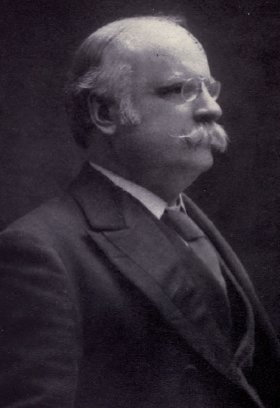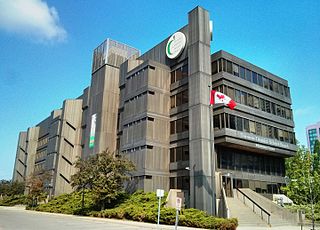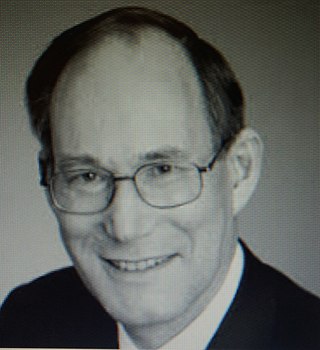Related Research Articles

Etobicoke is an administrative district and former city within Toronto, Ontario, Canada. Comprising the city's west end, Etobicoke is bordered on the south by Lake Ontario, on the east by the Humber River, on the west by Etobicoke Creek, the cities of Brampton, and Mississauga, the Toronto Pearson International Airport, and on the north by the city of Vaughan at Steeles Avenue West.
The Humber College Institute of Technology and Advanced Learning, rebranded as Humber Polytechnic since 2024, is a public college in Toronto, Ontario, Canada.

Glendon College is a public liberal arts college in Toronto, Ontario, Canada. Formally the federated bilingual campus of York University, it is one of the school's nine colleges and 11 faculties with 100 full-time faculty members and a student population of about 2,100. Founded as the first permanent establishment of York University, the school began academic operation under the mentorship of the University of Toronto in September 1960. Under the York University Act 1959 legislation, York was once an affiliated institution of the University of Toronto, where the first cohort of faculty and students originally utilized the Falconer Hall building as a temporary home before relocating north of the St. George campus to Glendon Hall — an estate that was willed by Edward Rogers Wood for post-secondary purposes.

Charles Joseph Doherty, was a Canadian politician, lawyer, and judge from Quebec. He served as Minister of Justice from 1911 to 1921 and was one of Canada's representatives at the Paris Peace Conference.
A provost is a senior academic administrator. At many institutions of higher education, the provost is the chief academic officer, a role that may be combined with being deputy to the chief executive officer. In some institutions, they may be the chief executive officer of a university, of a branch campus of a university, or of a college within a university.
Tyndale University is a Canadian private interdenominational evangelical Christian university in Toronto, Ontario, which offers undergraduate and graduate programs. Tyndale students come from over 40 different Christian denominations.
The Ministry of Colleges and Universities is the ministry of the Government of Ontario responsible for administration of laws relating to post-secondary education. This ministry is one of two education ministries, the other being the Ministry of Education. The Ministry's offices are in downtown Toronto. The current minister is Nolan Quinn.

Education in Toronto is primarily provided publicly and is overseen by Ontario's Ministry of Education. The city is home to a number of elementary, secondary, and post-secondary institutions. In addition to those institutions, the city is also home to several specialty and supplementary schools, which provide schooling for specific crafts or are intended to provide additional educational support.
The University of Guelph-Humber (UofGH) is a collaboration between the University of Guelph and Humber Polytechnic.

Queen's University at Kingston, commonly known as Queen's University or simply Queen's, is a public research university in Kingston, Ontario, Canada. Queen's holds more than 1,400 hectares of land throughout Ontario and owns Herstmonceux Castle in East Sussex, England. Queen's is organized into eight faculties and schools.

The University of Guelph is a comprehensive public research university in Guelph, Ontario, Canada. It was established in 1964 after the amalgamation of Ontario Agricultural College (1874), the MacDonald Institute (1903), and the Ontario Veterinary College (1922), and has since grown to an institution of almost 30,000 students and employs 830 full-time faculty as of fall 2019. It offers 94 undergraduate degrees, 48 graduate programs, and 6 associate degrees in many different disciplines.

Higher education in Ontario includes postsecondary education and skills training regulated by the Ministry of Colleges and Universities and provided by universities, colleges of applied arts and technology, and private career colleges. The current minister is Jill Dunlop who was appointed in June 2021. The ministry administers laws covering 22 public universities, 24 public colleges, 17 privately funded religious universities, and over 500 private career colleges. 18 of the top 50 research universities in Canada are in Ontario.

The Higher Education Quality Council of Ontario (HEQCO) is a provincial agency funded by the Ontario Ministry of Colleges and Universities (MCU). The goal of the agency is to provide recommendations for improving quality, accessibility, inter-institutional transfer, system planning, and effectiveness in higher education in Ontario. The council was founded in 2005 through the Higher Education Quality Council of Ontario Act.

Thomas Goldie was a businessman, politician and early promoter of field sports in Ontario. A secretary for the Guelph Maple Leafs, he also served as mayor of Guelph from 1891 to 1892.

Ian D. Clark, is an adjunct professor at the University of Victoria, a senior fellow in the Munk School of Global Affairs and Public Policy at the University of Toronto, a Canadian former civil servant, and former president of the Council of Ontario Universities.
Frank Wayne Peers was a Canadian political scientist and historian. He is a former director of information programming at the Canadian Broadcasting Corporation, who later taught at the University of Toronto in the Department of Political Economy. He is the author of two books and many articles about the politics of broadcasting in Canada.
Ontario Council on Articulation and Transfer (ONCAT), formerly known as the College University Consortium Council (CUCC), was established in 1996 by what is now the Ministry of Colleges and Universities. The council serves as an advisory body that helps in devising direct routes of transfers between postsecondary institutions for all students in Ontario, Canada.

Vivek Goel is a Canadian physician and academic who is the current President and Vice-Chancellor of the University of Waterloo. As a physician and public health researcher, he was also a university administrator, and served as a special advisor to the president and provost of the University of Toronto, and as a professor for the Dalla Lana School of Public Health. He is recognized in Canada and internationally as a public health researcher and expert in health-services evaluation. He has been an advocate for the use of research evidence in health policy-making.
The Flavelle commission, officially the royal commission on the University of Toronto, was a royal commission that studied university governance in Ontario. Joseph Flavelle led the commission, which focussed on governance of the University of Toronto. It made its report in 1906.
References
- ↑ Hunt, Lori Bona (September 19, 2001). "Vice-Provosts Named for Guelph-Humber". @Guelph. Retrieved January 20, 2018.
- ↑ Glenn, Ted (2005). Partners in Postsecondary Success: The University of Guelph-Humber. Institute of Public Administration of Canada. ISBN 9781550610796.
- ↑ "About David Trick". www.davidtrick.com. Retrieved 2021-04-09.
- ↑ "David Trick". Toronto Metropolitan University. Retrieved 2021-04-09.
- ↑ "HEQCO President and CEO Harvey P. Weingarten retiring from agency, interim president and CEO appointed". Higher Education Quality Council of Ontario. Retrieved 2021-04-09.
- ↑ "Academic Transformation | McGill-Queen's University Press". www.mqup.ca. Retrieved 2018-01-20.
- ↑ "Academic Reform | McGill-Queen's University Press". www.mqup.ca. Retrieved 2018-01-20.
- ↑ "The J.E. Hodgetts Award". Canadian Public Administration. 61 (4): 665. December 2018. doi:10.1111/capa.12305. S2CID 239528665.
- ↑ "Major new prize celebrates visual artists". Whitehorse Daily Star. June 26, 2020. Retrieved June 1, 2021.
- ↑ "Eagle Scouts of Troop 152". Troop 152, Boy Scouts of America. Retrieved 14 May 2024.
- ↑ "David Trick: Eagle Scout certificate". Boy Scouts of America. September 30, 1969. Retrieved 11 May 2021.